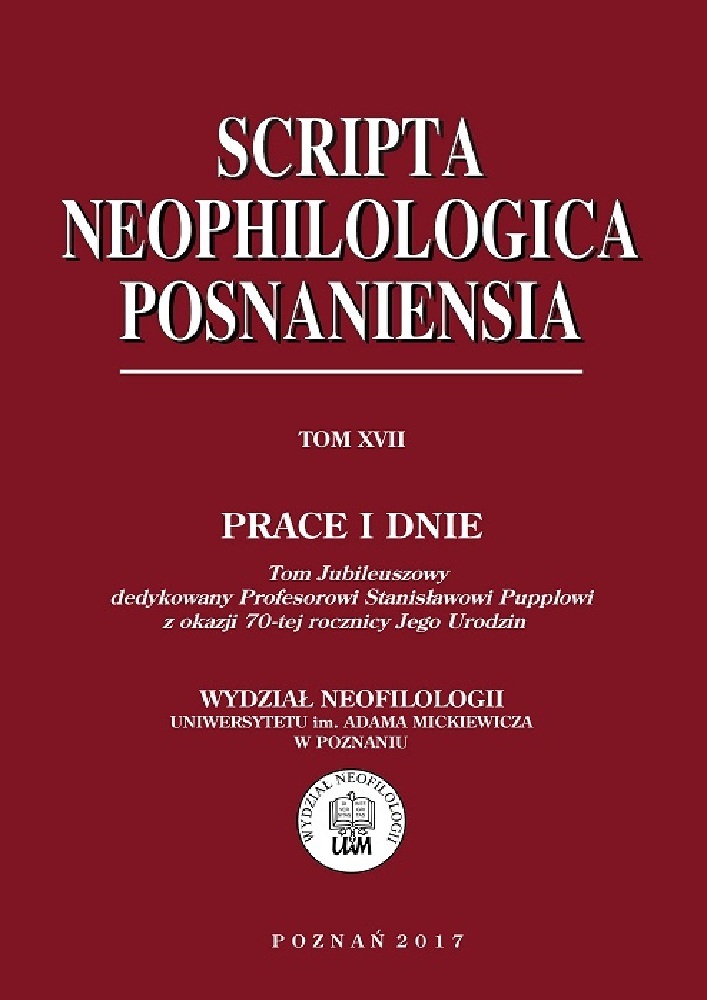Abstract
Natural and cultural layers of communicating selves in the discursive becoming of languageReferences
Ascoli, G.I. 1886. Due recenti lettere glottologiche e una poscritta nuova. Roma: E. Loescher.
Ascoli, G.I. 1881. Una lettera glottologica. Torino: E. Loescher. (“Lettere glottologiche”. Revista di Filologia e d’Istruzione Classica X (1881–1882). 1–71).
Blackmore, S.J. 1998. “Imitation and the definition of a meme”. Journal of Memetics – Evolutionary Models of Information Transmission 2.2. 159–170.
Blackmore, S.J. 1999. The meme machine. Oxford, UK: Oxford University Press.
Bühler, K. 1934/1965. Sprachtheorie. Die Darstellungsfunktion der Sprache. Zweite Auflage (Second edition). Stuttgart: Gustav Fischer Verlag, 1965 / Jena: Gustav Fischer Verlag, 1934.
Dawkins, R. 1982. The extended phenotype. Oxford, UK: Oxford University Press.
Dawkins, R. 2006. The selfish gene. 30th Anniversary edition. Oxford, UK: Oxford University Press.
Dawkins, R. 1989/1976. The selfish gene. New edition. Oxford, UK: Oxford University Press.
Deleuze, G. and C. Parnet. 2002/1987. Dialogues II. Trans. by Tomlinson, H. and B. Habberjam. London: The Athlone Press. / New York: Columbia University Press.
Deleuze, G. and F. Guattari. 2005/1987. A Thousand Plateaus. Trans. by Massumi, B. Minneapolis, MN: University of Minnesota Press.
Deleuze, G. and F. Guattari. 1976. Rhizome. Paris: Les Éditions de Minuit.
Dennett, D. 1991. Consciousness explained. Boston, MA: Little, Brown and Co.
Dennett, D. 1995. Darwin's dangerous idea: evolution and the meanings of life. New York, NY: Simon and Schuster.
Dennett, D. 1996. Kinds of minds: toward an understanding of consciousness. New York, NY: Basic Books.
Hauser, M.D., Chomsky, N.A. and W.T. Fitch. 2002. “The faculty of language: what is it, who has it, and how did it evolve”. Science 298.5598. 1569–1579.
Kloss, H. 1978. Die Entwicklung neuer germanischen Kultursprachen seit 1800. Zweite Auflage. Düsseldorf: Schwann.
Kull, K. 2000. “Copy versus translate, meme versus sign: development of biological textuality”. European Journal for Semiotic Studies 12.1. 101–120.
Kull, K. 2000. “Organisms can be proud to have been their own designers”. Cybernetics and Human Knowing 7.1. 44–55.
Lado, R. 1957. Linguistics across cultures. Ann Arbor, MI: University of Michigan Press.
Saussure, F. de. 1922. Cours de linguistique générale. Publié par Charles Bally et Albert Sechehaye. Avec la collaboration de Albert Riedlinger. Deuxième édition. Paris: Payot.
Schleicher, A. 1850. Linguistische Untersuchungen. 2. Teil: Die Sprachen Europas in systematischer Übersicht. Bonn: H.B. König.
Schleicher, A. 1848. Sprachvergleichende Untersuchungen. Zur vergleichenden Sprachgeschichte. Bonn: H.B. König.
Schmidt, J. 1872. Die Verwandtschaftsverhältnisse der indogermanischen Sprachen. Weimar: H. Böhlau.
Valkhoff, M. 1932. Latijn, Romaans, Roemeens. Amersfoort, UT: Valkhoff and Co.
Wartburg, W. von. 1932. „Die Ursache des Auseinanderfallens der Galloromania in zwei Sprachgebiete: Französisch und Provenzalisch. Vortrag gehalten in der Sitzung der Philologisch-Historischen Klasse der Sächsischen Akademie der Wissenschaften zu Leipzig vom 18. Mai 1932“. Forschungen und Fortschritte 8.21. 268–269.
Wąsik, Z. 2003. Epistemological perspectives on linguistic semiotics. Frankfurt am Main: Peter Lang.
Wąsik, Z. 2016. From grammar to discourse: towards a solipsistic paradigm of semiotics. Poznań: Adam Mickiewicz University Press.
Weinreich, U. 1974. Languages in contact. Findings and problems. The Hague/Paris: Mouton.
Whorf, B.L. 1956. Language, thought, and reality. Selected writings of Benjamin Lee Whorf. Cambridge, MA: The Massachusetts Institute of Technology Press.
Wierzbicka, A. 1980. Lingua mentalis: the semantics of natural language. Sydney/New York, NY: Academic Press.
Wierzbicka, A. 1972. Semantic primitives. Frankfurt am Main: Athenäum.
Yngve, V.H. 1986. From grammar to science. New foundations for general linguistics. Amsterdam: John Benjamins.
Zawadowski, L. 1966. Lingwistyczna teoria języka. Warszawa: Państwowe Wydawnictwo Naukowe.
